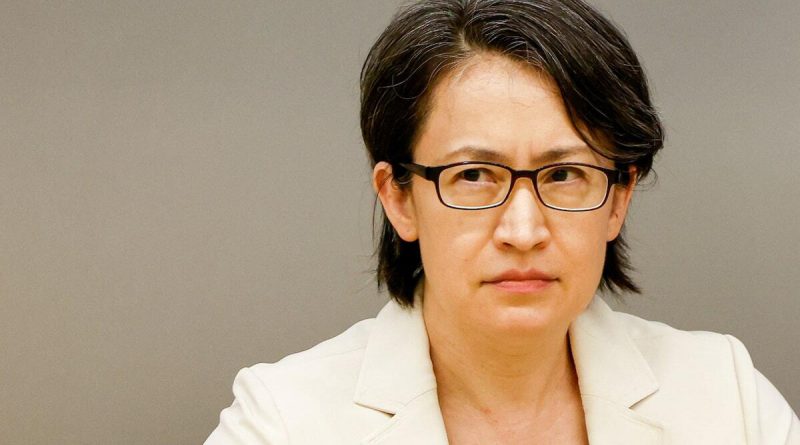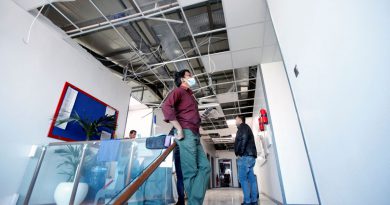Taiwan’s Vice President Hsiao Bi-khim makes rare and historic visit to Europe
Taipei – In a landmark diplomatic moment, Taiwan’s Vice President Hsiao Bi-khim visits Belgium to speak at the European Parliament, signaling a new era of Taiwan-Europe cooperation and democratic solidarity amid tensions with China.
Taiwan’s Vice President Hsiao Bi-khim has made a rare and symbolic visit to Belgium, where she delivered an inspiring address to members of the European Parliament.
The visit marked one of the highest-level exchanges between Taiwan and Europe in recent years and reflected Taipei’s growing efforts to expand its international presence despite ongoing opposition from Beijing.
Hsiao’s trip to Brussels was centered around her participation in the Inter-Parliamentary Alliance on China’s annual summit, where lawmakers from various nations gathered to discuss human rights, global democracy, and the challenges posed by authoritarian governance.
In her speech, Hsiao drew strong parallels between Taiwan’s determination to preserve democracy and Europe’s long-standing commitment to protecting freedom and human dignity.
“Europe has defended freedom under fire, and Taiwan has defended democracy under pressure,” Hsiao declared, earning praise from European lawmakers who commended Taiwan’s resilience in maintaining its democratic institutions despite constant pressure from China
“I stand here as a voice for a society deeply committed to the ideals that animate parliaments of democracy around the world,” she added.
The visit represents Taiwan’s growing confidence in asserting its democratic identity on the world stage.
While Taiwan’s only formal diplomatic partner in Europe remains the Vatican, many European countries such as France, Lithuania, Poland, and the Czech Republic have increasingly shown willingness to engage with Taiwan through informal but meaningful exchanges.
These interactions demonstrate Europe’s acknowledgment of Taiwan as a democratic partner that upholds shared values of freedom, human rights, and rule of law.
China’s reaction to the visit was predictably sharp. The Chinese Mission to the European Union issued a statement condemning Hsiao’s presence in Brussels, describing it as a “serious violation of the one-China principle” and accusing the island of undermining mutual trust between Beijing and the EU.
However, Taiwan’s government has firmly rejected Beijing’s claims, asserting its right to engage freely with the international community.
Taiwan’s presidential office emphasized that the vice president’s trip was part of ongoing diplomatic outreach to strengthen global partnerships.
Accompanied by Foreign Minister Lin Chia-lung, Hsiao underscored that Taiwan’s participation in global conversations is both legitimate and necessary.
She noted that, despite being excluded from many international organizations, Taiwan continues to contribute to global development, humanitarian aid, and sustainability initiatives.
“Despite being excluded from international organizations, Taiwan has stepped up,” Hsiao stated. “We contribute to humanitarian aid and uphold global standards even when we are not allowed a seat at the table.”
Her message resonated with many in attendance, reinforcing Taiwan’s image as a responsible global actor committed to peace and cooperation.
Hsiao also highlighted the importance of stability across the Taiwan Strait, calling it a cornerstone of global prosperity. Her remarks reflected Taipei’s desire to maintain peace while promoting dialogue and mutual respect, even as China continues to increase its military and diplomatic pressure on the island.
The vice president’s visit follows a broader pattern of Taiwan’s increasing diplomatic activity in Europe. In September, Foreign Minister Lin visited Austria, the Czech Republic, Poland, and Italy to deepen bilateral cooperation.
Former President Tsai Ing-wen is expected to visit Berlin next week to deliver a keynote address on democratic resilience and transatlantic unity.
These growing exchanges between Taiwan and European nations suggest a subtle but significant shift in global geopolitics. European countries are showing greater openness to engaging with Taiwan as part of their broader commitment to supporting democracies under threat.
While most European governments continue to adhere to the one-China policy formally, their willingness to interact with Taiwanese leaders reflects a pragmatic approach to international relations and a recognition of Taiwan’s contributions to global progress.
Hsiao Bi-khim’s visit thus stands as a powerful symbol of Taiwan’s diplomatic determination. It illustrates how the island, despite diplomatic isolation, continues to find meaningful ways to participate in the global dialogue on democracy, innovation, and peace.
For many observers, her presence in Brussels marks a new chapter in Taiwan-Europe relations — one grounded in shared principles, mutual respect, and a collective belief in the value of freedom.



